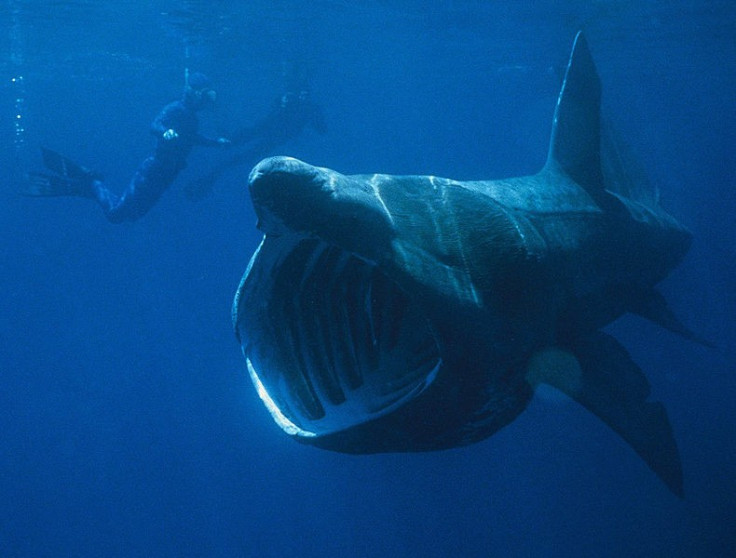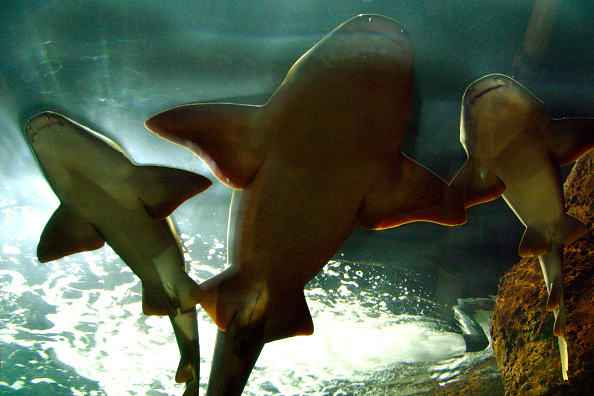Giant basking sharks swim south for the winter
A number of the gentle fish spend their winter months off the coasts of Spain, Portugal and North Africa.
A number of Britain's basking sharks swim south during winter months to get some sun, scientists have found out. The discovery contradicts previous hypotheses that the giant fish hibernated at this time of the year.
The plankton-eating basking shark can reach lengths of up to 12 metres, making it the largest fish in British waters and the second largest in the world, after the whale shark. It was once targeted by British fishermen for its liver oil, meat and fins but in the UK, the species received full protection under the Wildlife and Countryside Act in 1998.
It nevertheless remains classified as "vulnerable" on the International Union for Conservation of Nature's red list and its population in the northern Atlantic is considered to be endangered.
One of the main obstacles in protecting the basking shark efficiently is that not much is known about its evolutionary history, its biology and its behaviour because it remains hidden from human sight most of the year, deep underwater and far from land.
In research published in Scientific Reports, a team has now conducted the most detailed analysis to date of the basking shark's migrations in the north-east Atlantic, using satellite tracking technologies.
Dr Suzanne Henderson, of Scottish Natural Heritage, co-funder of the research, commented: "This huge and mysterious shark has intrigued us as a nation for many years, and evolving tagging technology is now allowing us to piece together vital parts of their life cycle. This is shedding new light on their seasonal residency and winter migration, which is key to their conservation."
Tracking the fish in the ocean
The scientists, from the University of Exeter, tagged 70 sharks. They were able to follow 28 of them for more than five months, as their tags continued transmitting. They discovered that, between late summer and spring, many sharks swam to the waters off Spain, Portugal and North Africa. Others stayed near the UK or in the Bay of Biscay in Western France.

This suggests that the sharks do not hibernate in the winter months but instead alter their behaviour and sometimes move around to get sun and warmth.
"We don't yet know whether individuals make the same migration each year or alter their behaviour based on factors such as body condition, reproduction and food availability. The primary drivers behind basking shark migrations are still unclear but they may include mating, searching for foraging grounds and finding water of preferred temperature," senior author Dr Matthew Witt said.

The findings may help scientists come up with better conservation strategies for the gentle giant fish in the future. Knowing where the sharks are in the winter - when they remain hidden in the water - can refine the way the species is managed and may lead to a greater understanding of the threats faced by sharks.
"This is essential information if we want to protect them, especially as they swim far outside UK waters, meaning any conservation efforts must be international. In terms of man-made threat they may face, we tend to think of commercial fishing as the only danger to these animals, but other issues such as boat strike, marine litter, civil engineering and ocean noise might also have an effect," lead author Philip Doherty concluded.
© Copyright IBTimes 2025. All rights reserved.






















